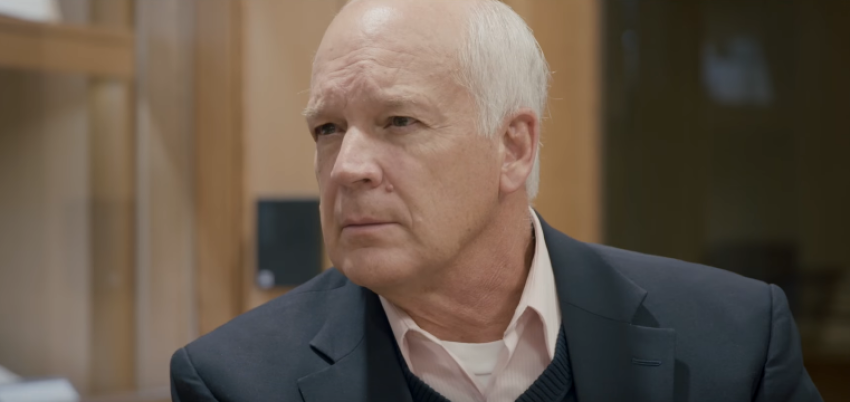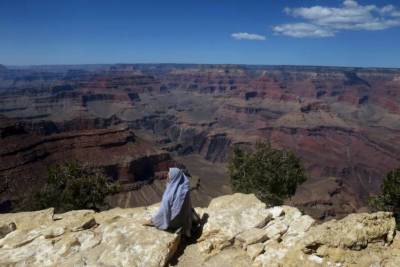Young Earth Creationist, Wheaton College Students Speak at 1-Y Anniv. Release of 'Is Genesis History?'

A documentary that makes a scientific case for a historical, six-day creation will be shown again in movie theaters nationwide Thursday, with extra footage highlighting the pushback it has received even from within the Christian community.
The film, "Is Genesis History?" by Thomas Purifoy with host Del Tackett, former senior vice president of Focus on the Family, will be re-released in over 850 theaters nationwide, a year after it came out. The documentary has continued to gain momentum, is back in theaters by popular demand, and is now available in alternate formats.
This time around, however, bonus material has been added featuring Wheaton College students touring Answers in Genesis' Ark Encounter in Kentucky with Tackett following a controversy that erupted on their campus about the theology of Creation soon after the film was screened there. While not a salvation issue, abandoning a six-day creation account described by a plain reading of Genesis and adopting belief in what is known as theistic evolution — the contention God set in motion an evolutionary process that resulted in the world as we know it over many millions of years — amounts to an affront on God's character, Tackett and the students argue.
These Wheaton students, as Tackett recounted to The Christian Post on Monday in a phone interview, were involved in a campus organization called The Creation Society who asked to show the film "Is Genesis History?" on campus. When Purifoy went to Wheaton to show the film he discovered that of the 200 professors at Wheaton, only two are historical Creationists.
"What happened was when they showed the film, it so enraged the faculty — I don't know if that's the right word or not — but it stirred up a brouhaha," Tackett said.
"So the week after [our] Genesis film was shown the faculty then got together and held their own assembly to counter the historical Genesis view that was presented in the film."
In the additional footage, while touring the Ark Encounter — a life-size replica and exhibition of Noah's ark in Williamstown, Kentucky — three of those Wheaton students speak with Tackett about their perspectives as Young Earth Creationists and how this issue impacts the younger generation on campus.

Tackett told CP that one of the things that compelled him to make the film — against the objections of friends who begged him not to because of the consequences of what happens when one openly admits to being a historic Creationist — was how the other views of Creation compromise who God is as He is revealed in Scripture.
The seminaries have largely bought primarily into the perspective of the BioLogos Foundation, and other theistic evolution-influenced views, he explained.
"And when a truth claim gets lodged into seminary it doesn't just sit there. Because students mull it over, they wrestle with it, and look at the implications of it," Tackett said.
"And what's happening in these seminaries and even with some of our senior pastors, is that all of a sudden, they make the logical conclusion that if evolution is true than a literal Adam and Eve cannot be true but is a metaphor for a hominid group that has evolved to a certain point."
Soon thereafter the doctrine of the fall of man gets spiritualized as do all the rest of the foundational truths that underpin a biblical worldview, he continued, stressing that the most egregious thing is what those views wind up saying about God's character.
"If I believe that the current scientific paradigm is true, that life has arisen as a result of evolution, that everything around us is a result of this evolutionary process, then it tells me something about God."

"And it tells me that God was the author of a process and collided with a process that used the death and struggle of creatures — the strong destroying the weak, creatures flopping around with partial this and partial that — on the way to fulfilling a process that God intended and must have delighted in which is so contrary to what we know God to be like."
God is revealed in the Bible as a compassionate Being, one who stands up for the weak and the needy, one opposed to the predator and the oppressor, he said; and that same God commands us, his children to care for the weak and the needy and the evolutionary process is incompatible with that.
In light of this assault on God's character Tackett said he was willing to be called names and mocked for his views though he made a point to note that he does regard Christians who do hold other perspectives on creation as brothers and sisters in Christ, that this subject is not a salvation issue when it comes to declaring who Jesus Christ is and the necessity of knowing God through Him.
"We ought to always be careful when we begin to look at Scripture with a presupposition that causes us to change the plain reading of the Scripture. And, in addition to that, caution people that we have a current scientific paradigm that is threatened and, I think, will collapse soon because the evidence is becoming so powerful against it."
He maintains that the current paradigm is tightly wedded to naturalistic philosophy that cannot declare in its conclusions anything but a naturalistic cause, eliminating the possibility of a supernatural origin. And it therefore makes no sense for Christians, who believe in a supernatural God, to put so much faith in a rigged, distinctly naturalistic system of thought that does precisely that.
As CP reported in March and April of last year, in "Is Genesis History?" Tackett introduces viewers to professionals with doctoral degrees in a variety of disciplines including geology, biology, astronomy, archaeology, philosophy, theology, and paleontology. He examines the scientific data at its source from the perspective of the history recorded in Genesis, explores everything from soft tissue in dinosaurs and the accuracy of radiometric dating to the nature of the genome and the timeline of natural history. He also highlights the structure and design of the cosmos, and the reality of a global, Noahic flood. The filmmakers emphasize starting with the Bible as a historical document and the importance of letting it speak for itself, and not through the lens of modern science where knowledge gained from inquiry is superimposed on and read back into the text.
"Is Genesis History?" was ranked No. 1 at the box office on Feb. 23, 2017, achieved the No. 1 per screen average, and landed as Fathom Events' No. 1 event in the inspirational category for the whole of 2017, according to Variety magazine.
Upon being released in alternate formats, the film debuted at No. 10 on the iTunes Independent Films Chart and has been a regular presence on the Amazon Documentary charts since its DVD release. In June 2017 the documentary was released on Netflix.
Tackett noted that the response to the film in the past year has "far surpassed" his team's expectations and expressed hope that additional screenings would help open conversations and continue to cause people to search for answers to life's biggest questions.



























